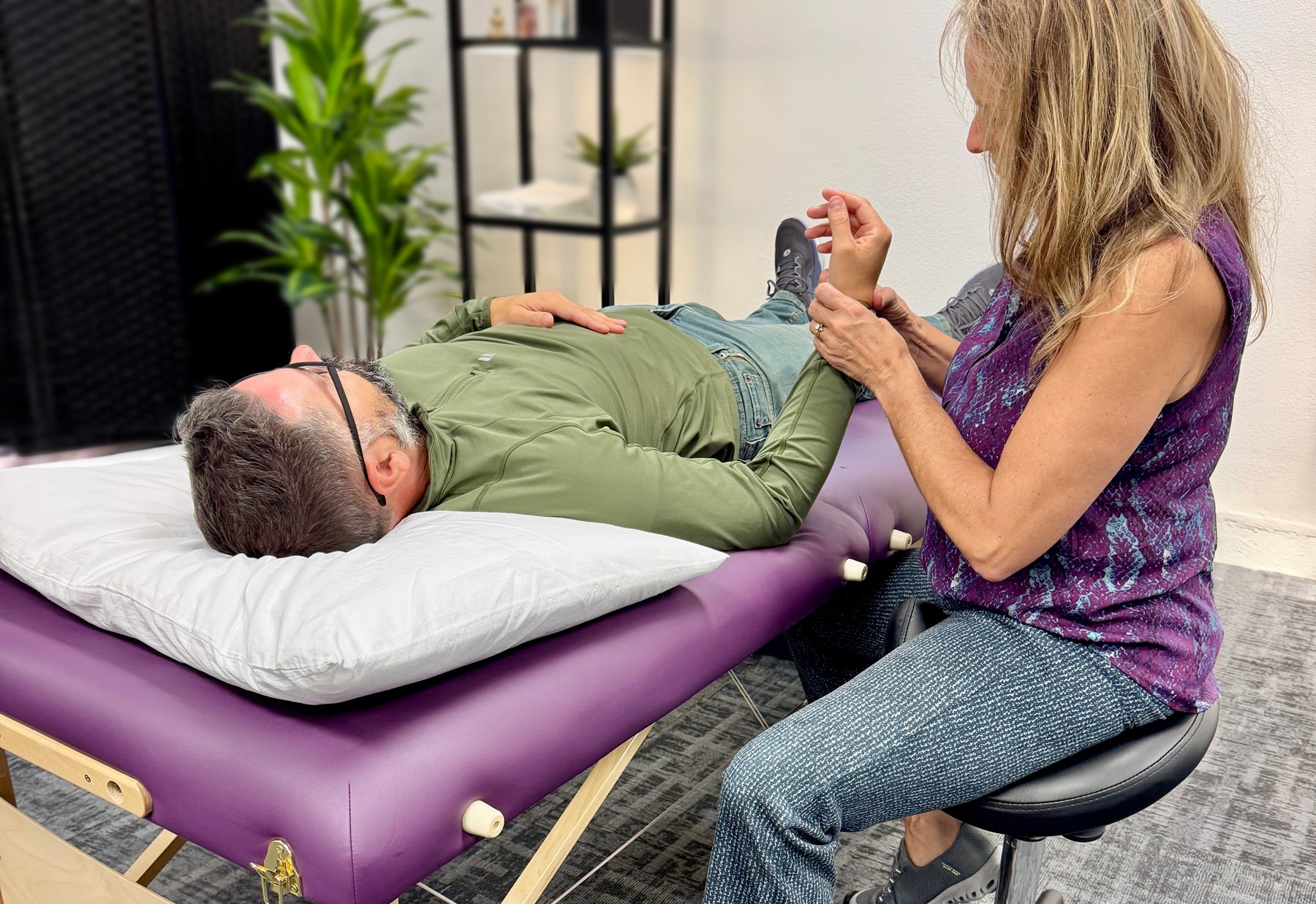
What Is Fascial Counterstrain?
Gentle, Effective Relief for Pain, Tension, and Dysfunction
At Fascial Connections Physical Therapy in Duluth, Minnesota, we specialize in a gentle but powerful manual therapy technique called Fascial Counterstrain (FCS). This innovative form of physical therapy helps patients across Duluth, Hermantown, Proctor, Two Harbors, Cloquet, and all of Northern Minnesota, as well as Superior, Hayward, and Northern Wisconsin, find lasting relief from chronic pain, mobility issues, and systemic dysfunction.
Understanding the Fascia System
Fascia is the body’s connective tissue web. It is a three-dimensional structure that runs from head to toe, wrapping around every organ, nerve, artery, vein, muscle, and bone. When fascia is healthy, it allows for smooth, pain-free movement and supports communication between body systems.
When fascia becomes tight, restricted, or inflamed because of injury, infection, surgery, or emotional stress, it can create strain patterns that lead to:
Chronic pain or stiffness
Nerve irritation or tingling
Headaches or migraines
Digestive issues
Fatigue or poor circulation
Difficulty recovering from injury
Because fascia connects every part of the body, a restriction in one area, such as the neck, can create symptoms elsewhere, like in the back or hips.
What Makes Fascial Counterstrain Different?
Fascial Counterstrain is a gentle, hands-on therapy that identifies and releases fascial restrictions. During treatment, your therapist uses light touch to locate areas of strain, then carefully positions your body to slacken the affected fascia. This allows the tissues to naturally unwind and reset.
This process helps:
Restore mobility and flexibility
Normalize nerve and blood vessel function
Improve organ and lymphatic health
Reduce pain and inflammation
Support the body’s self-healing mechanisms
Unlike deep tissue or forceful manipulations, Fascial Counterstrain works with the body, not against it. Many patients describe their sessions as calming and relaxing, and often notice significant changes after just a few visits.
LEARN MORE: Fascial Counterstrain Resources & Links
The Science Behind Fascial Counterstrain
Fascial Counterstrain evolved from the osteopathic technique called Strain Counterstrain. Over time, it has developed into a neuro-fascial therapy that targets the body’s protective reflexes. When a part of the body experiences trauma or stress, tiny sensors within the fascia trigger contractions to protect that area. Sometimes these protective contractions stay "on," even after the original problem has passed. This can cause ongoing pain and restriction.
Fascial Counterstrain uses gentle positioning to turn off these reflexes, signaling to the nervous system that it is safe again. Once this happens, tissues can release, circulation improves, and balance is restored throughout the body.
Research in fascial science, neuroanatomy, and pain modulation continues to support this approach, making it one of the most advanced and effective forms of manual therapy available today.
Who Can Benefit from Fascial Counterstrain?
Fascial Counterstrain can help people of all ages and activity levels, including athletes, office workers, and those recovering from surgery or living with chronic pain.
Common conditions treated include:
Neck and back pain
Joint stiffness and muscle tightness
Headaches and migraines
TMJ (jaw) pain
Sciatica and nerve pain
Post-surgical scar restrictions
Digestive or lymphatic dysfunction
Fatigue and postural imbalances
Stress-related tension
At Fascial Connections, many patients come to us after trying other therapies that provided only short-term relief. Because Fascial Counterstrain works on the root cause of dysfunction deep within the body’s fascial and neural systems, it often succeeds where other methods fall short.
LEARN MORE: Common Conditions Treated and Common Injuries Treated
What to Expect During a Session
Your first session begins with a detailed conversation about your health history and current symptoms. Cindy will then assess your fascial system using gentle palpation to identify areas of tension or strain.
Once these restrictions are found, she uses precise positioning and subtle movements to allow your body to release them naturally. Most people find sessions deeply relaxing, and many notice better mobility, less pain, and an overall sense of ease after the first appointment.
Each session is personalized and progresses at your body’s pace. Cindy’s holistic approach ensures that your muscular, vascular, neural, and visceral systems all work together as you heal.
LEARN MORE: Frequently Asked Questions
Serving Duluth and the Northland Region
Fascial Connections Physical Therapy proudly serves clients from Duluth, Hermantown, Proctor, Cloquet, Two Harbors, and Northern Minnesota, as well as Superior, Hayward, and Northern Wisconsin.
Whether you are seeking relief from chronic pain, recovering from an injury, or simply want to move more freely, Fascial Counterstrain offers a safe and effective way to restore wellness in motion.
Experience the Difference of Fascial Counterstrain Therapy
If you have been looking for gentle physical therapy that truly gets to the root of pain, Cindy Fischbach invites you to experience the Fascial Connections approach. Contact Fascial Connections Physical Therapy to discover how restoring balance to your fascial system can help you move, feel, and live better.

